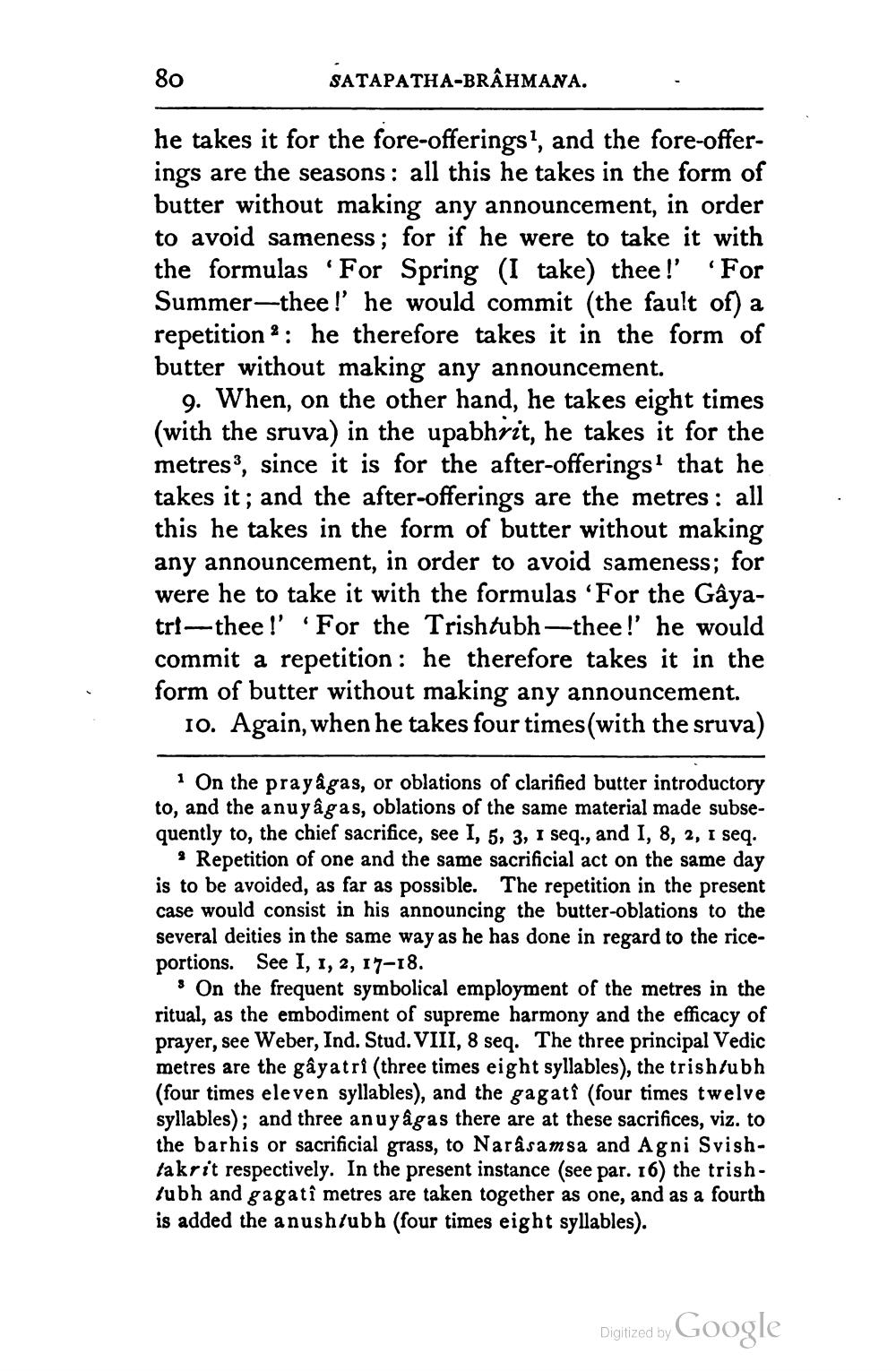________________
80
SATAPATHA-BRAHMANA.
he takes it for the fore-offerings', and the fore-offerings are the seasons: all this he takes in the form of butter without making any announcement, in order to avoid sameness; for if he were to take it with the formulas ‘For Spring (I take) thee!' 'For Summer-thee!' he would commit (the fault of) a repetition 2 : he therefore takes it in the form of butter without making any announcement.
9. When, on the other hand, he takes eight times (with the sruva) in the upabhrit, he takes it for the metres", since it is for the after-offerings that he takes it; and the after-offerings are the metres : all this he takes in the form of butter without making any announcement, in order to avoid sameness; for were he to take it with the formulas 'For the Gâyatrf-thee!' 'For the Trishtubh-thee!' he would commit a repetition : he therefore takes it in the form of butter without making any announcement.
10. Again, when he takes four times(with the sruva)
1 On the prayâgas, or oblations of clarified butter introductory to, and the anuyâgas, oblations of the same material made subsequently to, the chief sacrifice, see I, 5, 3, 1 seq., and I, 8, 2, I seq.
* Repetition of one and the same sacrificial act on the same day is to be avoided, as far as possible. The repetition in the present case would consist in his announcing the butter-oblations to the several deities in the same way as he has done in regard to the riceportions. See I, 1, 2, 17-18.
8 On the frequent symbolical employment of the metres in the ritual, as the embodiment of supreme harmony and the efficacy of prayer, see Weber, Ind. Stud. VIII, 8 seq. The three principal Vedic metres are the gayatri (three times eight syllables), the trishtubh (four times eleven syllables), and the gagati (four times twelve syllables); and three anuyagas there are at these sacrifices, viz. to the barhis or sacrificial grass, to Narâsamsa and Agni Svishlakrit respectively. In the present instance (see par. 16) the trishtubh and gagatî metres are taken together as one, and as a fourth is added the anush/ubb (four times eight syllables).
Digitized by Google




